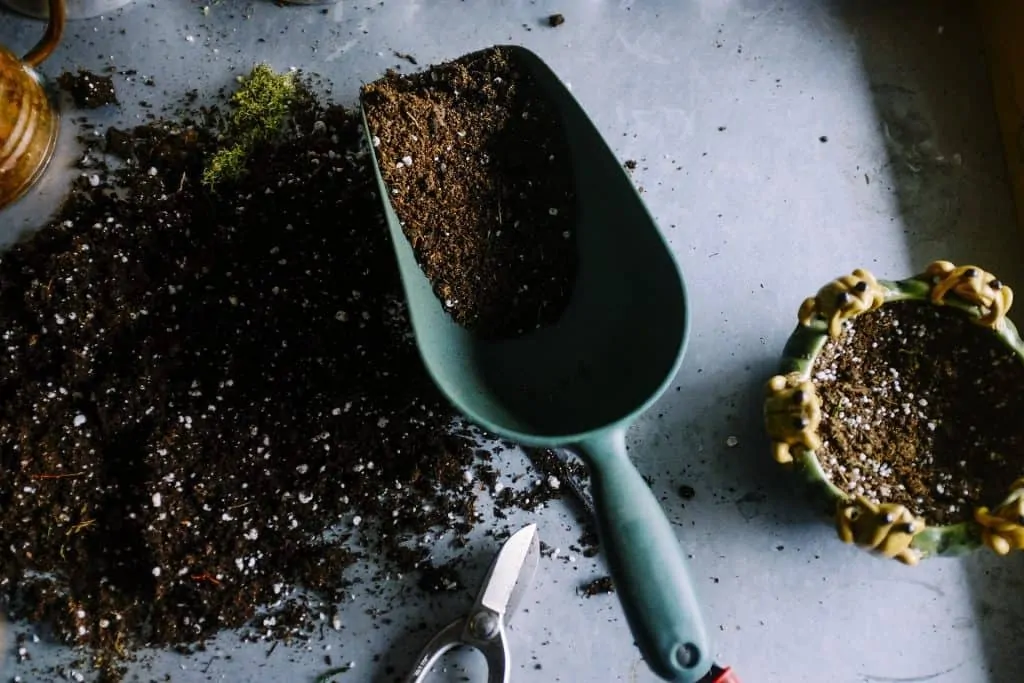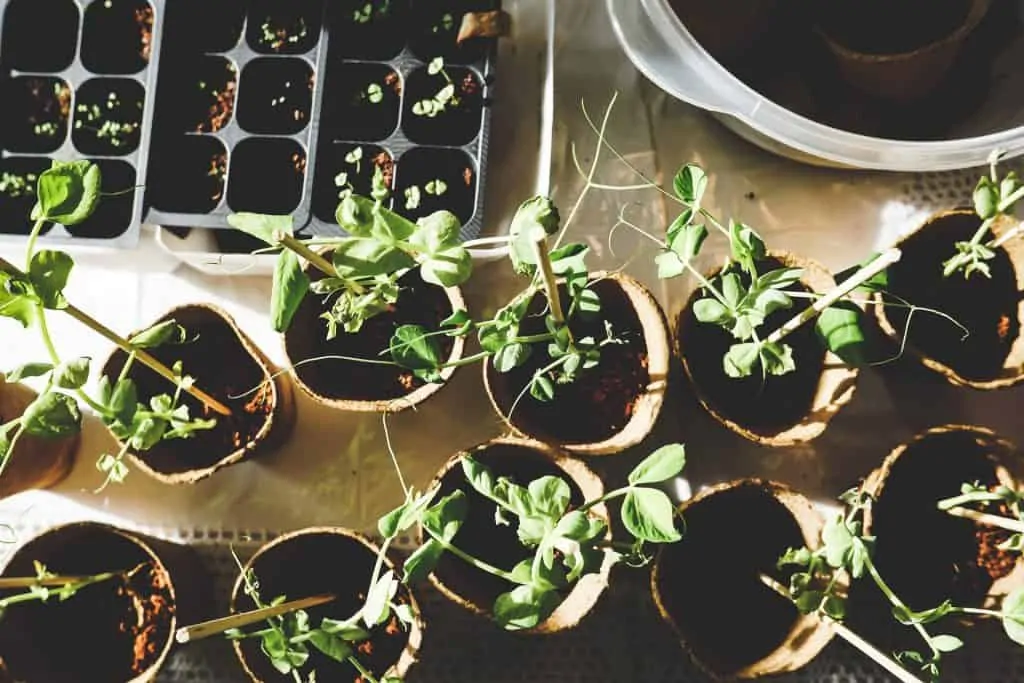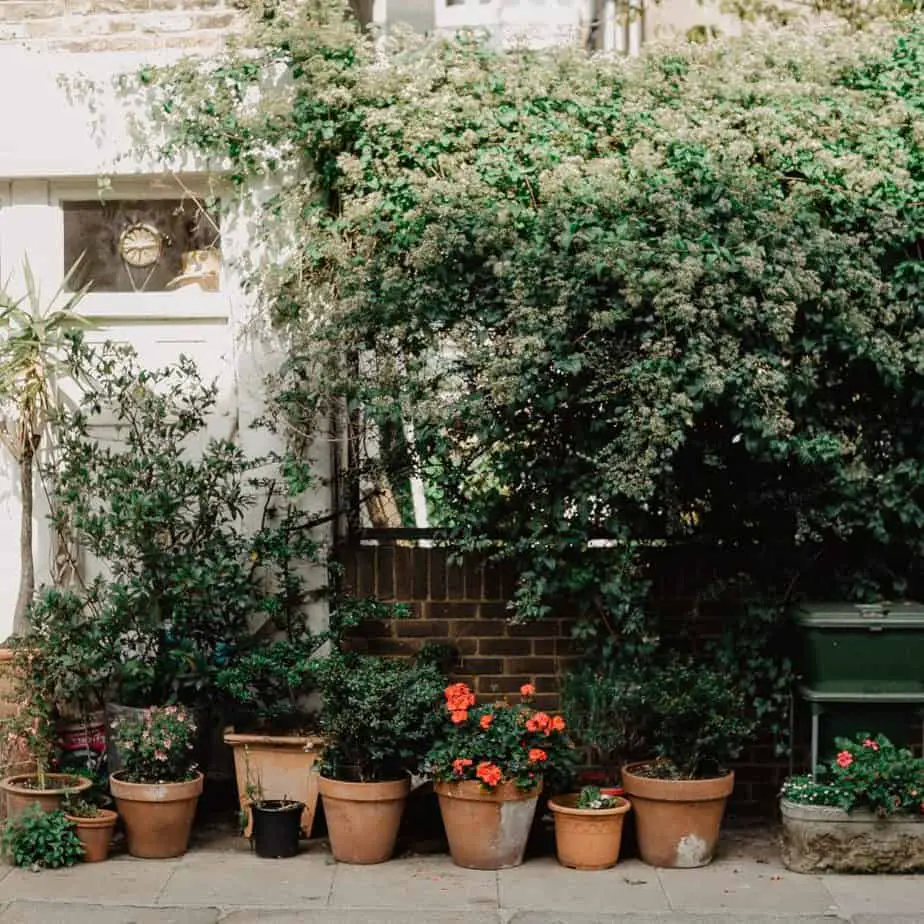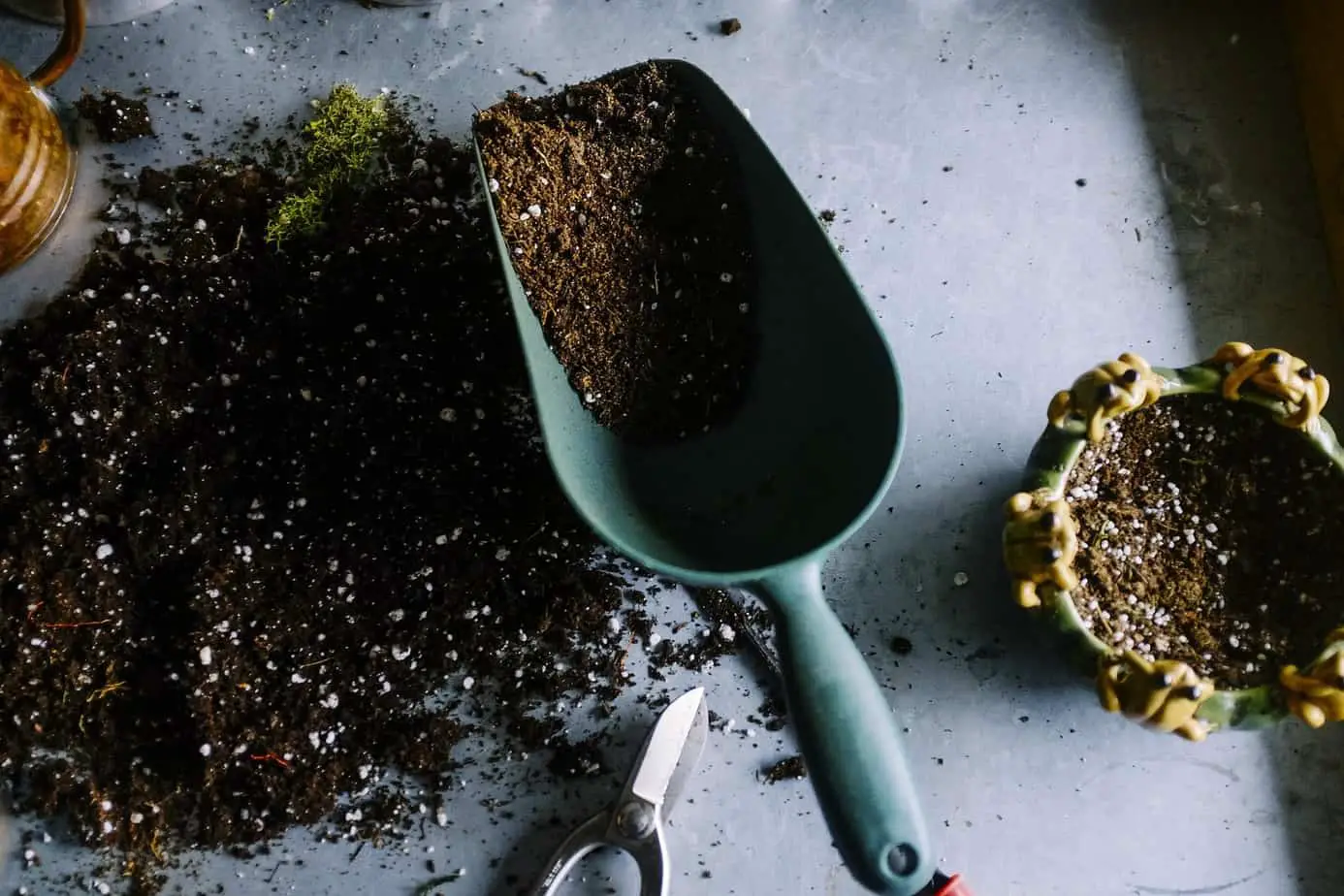Mushroom compost, also called mulch, is the growing material that’s left over from the process of growing mushrooms on an industrial scale. It is used as a relatively inexpensive way to improve garden soil and plant growth, as mulch is full of nutrients.
In this article, we’ll teach you what exactly mushroom compost is, how it’s made, and the 12 ways mushroom compost will improve your soil. Keep reading to find out the benefits of mushroom compost and how to use it in gardening.
Table of Contents
- 1 What is Mushroom Compost?
- 2 Mushroom Compost for Gardening
- 3 Mushroom Compost Benefits
- 4 How to Use Mushroom Compost?
- 5 12 Ways Mushroom Compost Will Improve Your Soil
- 5.1 1. It feeds your plants.
- 5.2 2. Versatile use.
- 5.3 3. Organic compost.
- 5.4 4. Mushroom compost holds water better.
- 5.5 5. Reduced chance of pests.
- 5.6 6. Say goodbye to weeds as well.
- 5.7 7. No more viruses.
- 5.8 8. Compost that prevents surface compaction.
- 5.9 9. Excellent for drainage.
- 5.10 10. Excellent for killing weeds.
- 5.11 11. Compost that doesn’t smell bad.
- 5.12 12. Affordable price.
- 6 When to Avoid Using Mushroom Compost
What is Mushroom Compost?

Mushroom compost is a type of slow-release, organic plant fertilizer. Mushroom compost recipes tend to slightly differ as the growing process varies between individual growers. But, in general, the compost is made by using organic materials such as hay, straw, corn cobs and hulls, and poultry or horse manure. Sometimes, compost will contain other bits such as peat moss or lime because mushroom farmers use their own mixtures so no two are likely to be exactly the same.
Once the mushroom spores are added to the compost mix, everything is steam sterilized to kill weed seeds and any other harmful agents. The growers keep the compost in trays at an optimum temperature to encourage mushroom production. The process takes about three to four weeks, and, once it is complete, the leftover compost is disposed of and sold as fertilizer. Since mushrooms don’t use the nutrients that greenery needs, the compost remains a rich organic source of food for your flowers and veggies.
Mushroom Compost for Gardening
Mushroom compost is generally sold in bags labeled as SMC or SMS (spent mushroom compost or spent mushroom substrate). It is available at many garden centers or through landscape supply companies. You can also purchase mushroom compost by the bushel or truckload, depending on how you plan to use it in the garden.
Speaking of, there are numerous uses for mushroom compost in the garden. You can use it as as a soil amendment for lawns, gardens, and container plants. It is important to keep in mind that mushroom compost has high soluble salt levels and it should be used with caution. High salt levels can harm young seedlings, damage salt-sensitive plants (such as azaleas and rhododendrons) and kill germinating seeds.
Mushroom Compost Benefits
The benefits that come with the use of mushroom compost outweigh the downside of high salt levels. First of all, this type of compost comes at an inexpensive price. It enriches the soil and supplies nutrients for the healthy growth of plants.
Mushroom compost also increases the water-holding capacity of the soil, meaning that you’ll need to water your plants less. And, the best part about this type of compost is that it is suitable for most garden plants. Mushroom compost supports various types of plant growth, from fruits and vegetables to herbs and flowers.

Image Courtesy of Pexels
How to Use Mushroom Compost?
Mushroom compost can be dug into the soil or place around the roots. You can also put it right under the roots of any newly purchased plants and make a liquid feed. A good thick layer of approximately 5-6 inches is necessary around the base of established plants but make sure not to put mushroom compost on bark as it can cause rotting.
If you’d like to use the compost to boost a veggie patch, the amount of compost required depends on the quality of your soil. It is recommended to apply about 5-10kg per square meter but you can adjust this amount to your soil needs. If your soil is quite productive, then you won’t need as much.
To get the optimal results, mix the compost with the garden soil before planting. It’s recommended to apply mushroom compost in early spring when plants are waking up from a long winter, or a few months before sowing your vegetables. If you’re dealing with poor soil, you can use mushroom compost in winter (from December onwards) and fork through regularly to improve soil quality.
Related Posts:
- 15 Benefits of Artificial Grass – Is It the Latest Gardening Wonder or Too Good to Be True?
- 10 Essential Gardening Tools List and How to Use Them
- 10 Common Garden Pests: How to Get Rid of Them and Have a Healthy, Thriving Garden
- The Ultimate Guide to Mulching and Why Your Garden Will Thank You for It
- 11 Incredible Ways How Gardening Benefits Your Health
12 Ways Mushroom Compost Will Improve Your Soil
Wondering what can mushroom compost do for your garden? Here are 12 ways mushroom compost will improve your soil.

Image Courtesy of Pexels
1. It feeds your plants.
As a slow-release nourishing fertilizer, mushroom compost will encourage spreading of beneficial fungi, bacteria and micro-organisms into the soil. If you’ve forked mushroom compost through the garden or used it as mulch, your plants probably won’t need much more feed unless you’ve got a hungry clematis or tomato demanding its dinner.
2. Versatile use.
Forgot to add mushroom compost before planting? Don’t worry! This type of compost can be also placed around plants that are in situ – this is known as ‘top-dressing’.
3. Organic compost.
Are you an organic gardener? Then mushroom compost is about to become your best friend. With mushroom compost, you won’t need to worry about affecting wildlife or chemicals leaching into your veggies.
4. Mushroom compost holds water better.
One of the 12 ways mushroom compost will improve your soil is by helping it hold moisture in place. Moisture holding is very beneficial, especially in areas where drought is a common occurrence during the summer. Mushroom compost allows the soil to better hold moisture, meaning that you won’t have to water it as often as you used to.
Moisture retention also improves life for your plants because changing from dry to wet conditions can impede grow. If you can maintain a steady, moist condition they will appreciate it and be a lot healthier as a result.
5. Reduced chance of pests.
We’re quite sure that this is one of the mushroom compost benefits that will surprise most gardeners. Mushroom compost is sterilized and it won’t introduce any pests to your garden.
6. Say goodbye to weeds as well.
Steam sterilization is also great for eliminating chances of weeds appearing in your garden. So, using mushroom compost will not only improve the quality of your soil and boost plant growth, but also reduce the chances of pests and weeds.
7. No more viruses.
Pests and weeds are not the only issues our plants have to fight off. Viruses can kill quickly and efficiently. Mushroom compost is virus-free and produces a healthy plant that can fight off infections.
8. Compost that prevents surface compaction.
All kinds of external elements can have a negative impact on your garden – sun, rain, and even foot tread. Luckily, mushroom compost can be used to prevent the soil surface from crusting and compacting. This aids rain absorption and encourages worms to generate healthy, crumbly soil.
9. Excellent for drainage.
If you’ve ever read plant labels, then you must have noticed one common instruction – “best in moist but well-drained soil.” Mushroom compost can help you create this ideal environment for plants, without you having to water and dig the soil. Mushroom compost can improve chalky, clay or compacted soils and ensure that water runs freely. This means your plants won’t get waterlogged and drowned out.
10. Excellent for killing weeds.
We already mentioned that mushroom compost reduces the chances of weeds appearing in your garden. But, it can also be used to kill off any existing weed. All you need to do is apply a thick layer of mushroom compost as mulch.
11. Compost that doesn’t smell bad.
You might dislike the idea of using compost made from organic matter, or, in plain terms – animal poo. But, the great news is that this compost doesn’t smell bad at all. Truth be told, when you open the bag of compost you may notice a musty smell, but the compost doesn’t stink. And, once you apply the compost, any smells will disappear.
12. Affordable price.
Mushroom compost tends to be quite cheap when compared to other types of compost. You can order a ton with delivery for well under £100. When you think about growbag costs and what little area they cover that’s a bargain. And, don’t worry if you buy too much compost. Just store it in a folded bag and make sure no water or rain gets in.
When to Avoid Using Mushroom Compost
Mushroom compost is an excellent choice for keeping the soil in your garden healthy and ensuring a thriving environment for your plants. After exploring the 12 ways mushroom compost will improve your soil, it’s time to mention some negative effect this type of compost can have on your garden.
There are a few plants that don’t benefit from the alkaline properties of mushroom compost, such as fruit bushes and acid loving plants like camellia, rhododendron, heathers and magnolia. If you plan to add these plants to your garden, then we recommend adding an ericaceous soil top up.
In case you put mushroom compost around these plants and noticed yellowing leaves it points to a nutrient deficiency. Remove the mushroom compost immediately and put some acid-based compost in there instead.
And, there you have it – 12 ways mushroom compost will improve your soil. All in all, mushroom compost is an excellent choice for all those looking to improve the quality of their soil. By using this compost, you’ll be adding organic fertilizer that will nourish your soil and lead to gorgeous blooms and a tasty vegetable patch all year round. And, the best part is, mushroom compost is one of the most affordable fertilizers you’ll find on the market!

